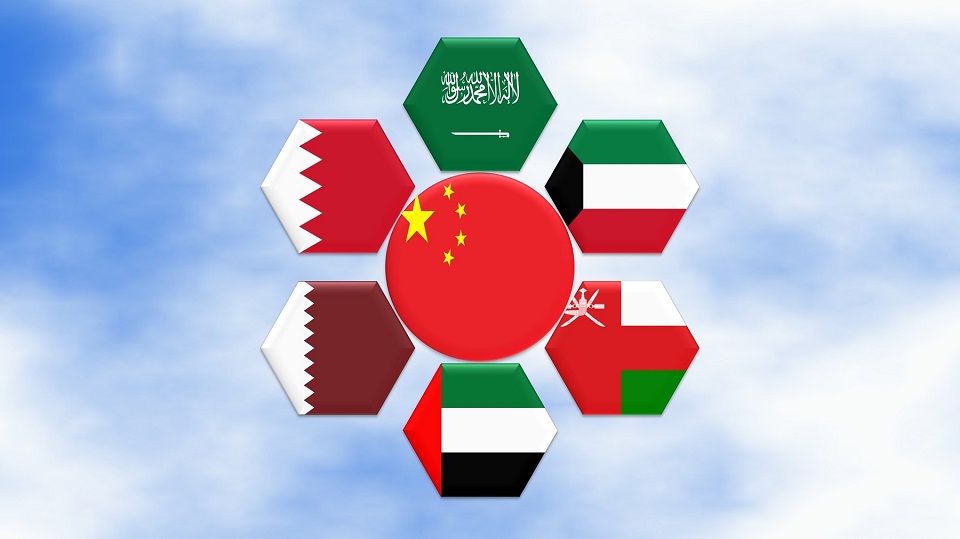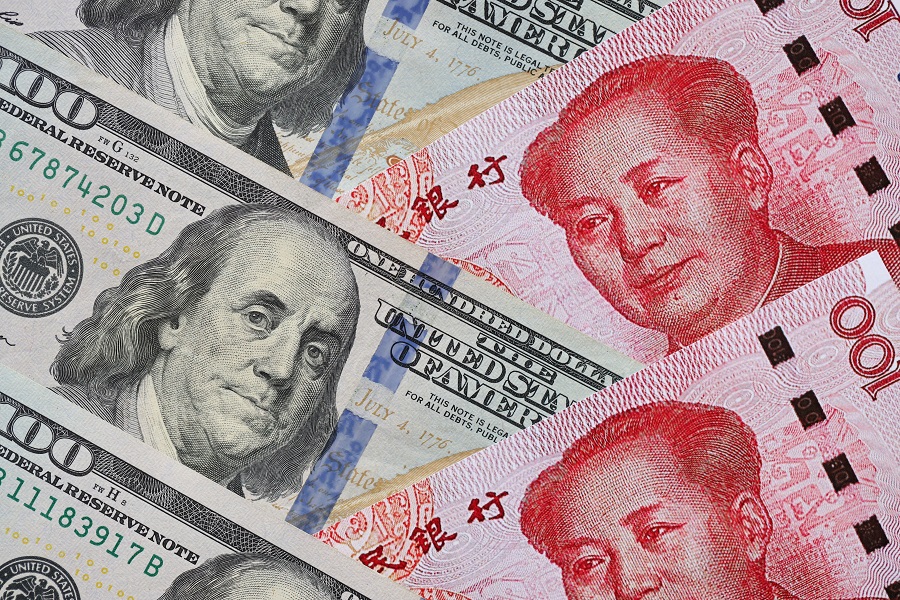Key Takeaways
|
Negotiations for a free trade agreement between GCC countries and China – which started in 2004 – encountered numerous challenges. Despite this, the current climate creates favorable conditions to seal these negotiations, as trade between the two sides is constantly growing. However, several challenges persist, impeding a breakthrough.
According to a report by Reuters on May 14, 2024, negotiations between China and GCC countries on a free trade agreement have hit a roadblock due to concerns by Saudi Arabia that cheap Chinese imports may undermine its ambitions to transform the kingdom into an industrial powerhouse. Over the past two years, Saudi Arabia has backed renewed efforts for the GCC to seal a long-sought deal with China finally.
However, the sides remain at an impasse over Saudi reservations over Beijing’s proposed list of goods exempt from Gulf import duties. Saudi Arabia fears an influx of competitively priced Chinese products could shatter its domestic industrial objectives.
The Goal: ‘Institutionalized’ Relations
For its part, China acknowledges the formidable challenges hindering the realization a free trade agreement with GCC countries. However, Beijing has constantly demonstrated keenness to overcome these obstacles and finalize this key agreement. In previous statements to the press, Chinese Ambassador to Saudi Arabia Chen Weiqing said that free trade negotiations between China and GCC countries took longer than the two sides expected, now spanning their 19th year.
“However, we have made significant progress recently. About 90 percent of the problems have been settled, and the remaining ones are few but difficult,” he noted. The Chinese diplomat stressed that “GCC countries are essential partners for Beijing, and signing a free trade agreement will promote trade cooperation between the two sides. At the same time, we hope it will be of high quality.”
The Chinese official stressed that although progress had been made, difficult issues needed to be resolved. “If we can make progress in this direction, overcome difficulties, and meet the demands of partners from both sides, a character of ‘institutionalization’ will prevail over the GCC-China relations.” This aligns with China’s objectives, given the significance of GCC countries as key trade partners and vital energy exporters.
Advancing toward “institutionalizing GCC-China relations” within a collective, rather than solely bilateral, framework is viewed as a step aligning with the GCC’s “Pivot to the East” strategy. At this point, Beijing perceives that GCC countries have progressed beyond the dichotomy of deepening their ties with China or maintaining them at a static level. They have chosen the first track, actively positioning their countries as promising markets for Chinese investments in diverse sectors, such as infrastructure, ports, railroads, technology, and AI applications. Undoubtedly, the ramifications of the American-Chinese competition weigh on this track. However, GCC countries are adamant about diversifying their options, avoiding polarizations, and engaging constructively with all stakeholders.
 Beijing perceives that GCC countries have progressed beyond the dichotomy of deepening their ties with China or maintaining them at static level. (Shutterstock)
Beijing perceives that GCC countries have progressed beyond the dichotomy of deepening their ties with China or maintaining them at static level. (Shutterstock)
Deepening Partnership ‘Beyond Oil’
Multiple objective justifications compel GCC countries and China to deepen their trade partnership. Chinese President Xi Jinping pledged in 2014 to double trade with GCC countries in the coming years, a commitment that spurred significant actions from both parties. Over the past years, Chinese officials have made numerous visits to the region to follow up on this endeavor.
GCC-China cooperation and partnership have deep historical roots. The two sides have come a long way in cementing their ties. Notably, the UAE and Saudi Arabia enjoy a comprehensive strategic partnership with China, the highest form of diplomatic recognition and cooperation that Beijing could provide to another country. Similarly, Qatar, Oman, and Kuwait have forged strategic partnerships with China, the next level of cooperation provided by China to any other country. These partnerships underscore the parties’ growing mutual significance and commitment, embodying a mutually beneficial “win-win” formula.
Former Omani Ambassador to China, Ibrahim bin Hmoud Al Subhi, believes that “the signing a free trade agreement with China is overdue”. He underscores the Gulf States’ need to expedite their engagements with China, given its status as the world’s second-largest economic power. The GCC Summit in Al-Ula, Saudi Arabia, convened in January 2021, emphasized the imperative of advancing the free trade agreement with China, stressing the importance of the strategic and economic relations between the two sides.
This initiative should be seen as parallel with the GCC’s overarching strategy to broaden and diversify its strategic partnerships and international engagements, preparing for the post-oil era and positioning within in a diverse, multi-lateral international landscape. In this context, the GCC signed a free trade agreement with South Korea in December 2023, marking the second such agreement within three months following a similar pact with Pakistan.
Moreover, GCC countries signed free trade agreements with Singapore on December 15, 2008; the European Free Trade Association (EFTA), comprising Iceland, Liechtenstein, Norway and Switzerland, on June 22, 2009; and New Zealand on October 31, 2009. On September 8, 2023, the GCC countries ratified the extension of the joint action plan with Japan for 2024-2028. In current negotiations, the GCC countries aim to sign free trade agreements with the EU, Turkey, China, Japan, India, and Australia, as well as with the Southern Common Market, commonly known by its Spanish abbreviation Mercusor, encompassing Argentina, Brazil, Paraguay, and Uruguay.
The ongoing negotiations between the GCC countries and China for a free trade agreement are rooted in the Framework Agreement for Economic, Investment and Technical Cooperation signed between the GCC countries and China in 2004, and the Memorandum of Understanding signed between the two parties in 2010.
 China's industrial and technological prowess plays a pivotal role in supporting the growth of the MENA region. (Shutterstock)
China's industrial and technological prowess plays a pivotal role in supporting the growth of the MENA region. (Shutterstock)
Enumerating the reasons and justifications for both sides to conclude negotiations on a free trade agreement, the following key points emerge:
- The GCC holds a significant position as one of the world’s largest exporters of oil and natural gas. Despite recent shifts in global energy trade dynamics due to the war in Ukraine, the Gulf and Middle East regions remain crucial for China's energy imports. Notably, in 2023, China, as the world’s largest oil importer, purchased a record volume of 107 million tons of Russian crude oil, marking a 24 percent increase from 2022. This surpassed the approximately 85.96 million tons acquired from Saudi Arabia, making Russia Beijing’s top oil supplier for the first time since 2018
- China’s industrial and technological prowess plays a pivotal role in supporting the growth of the MENA region. The GCC countries provide substantial investments, and Chinese firms are gaining access to crucial markets such as the UAE, Saudi Arabia, Egypt, and others.
- During his Middle East tour in March 2021, which included visits to four Gulf countries, Chinese Foreign Minister Wang Yi underscored his country’s commitment to achieving a free trade agreement with the GCC countries. Such an agreement is anticipated to enhance exports and imports between the parties, strengthen the strategic foundations of their relations, and contribute to the economic recovery of China, the GCC countries, and the world. Given the GCC’s plans to diversify their economies, any potential agreement between the two sides will likely extend beyond oil to encompass trade, services (including digital), technology sectors, and direct investments.
- Advancing toward a Free Trade Agreement (FTA) between the two sides aligns with China’s objectives to enhance synergy between the Belt and Road Initiative and Gulf development plans, particularly over the next two decades. This collaboration is crucial, particularly in clean and renewable energy and climate change adaptation. A potential FTA could bolster China's green sectors, benefiting from the GCC region’s efforts to diversify its energy infrastructure. Climate change concerns have gained prominence following recent extreme weather events in the region. China’s expertise in various crucial sub-sectors related to electricity and electric vehicles positions it as a valuable partner.
- Experts suggest that an FTA between the Gulf and China could unlock new opportunities in services, technology, artificial intelligence, and robotics. It could also strengthen ties in infrastructure, transportation, and logistics, potentially significantly increasing non-oil trade. Additionally, opportunities exist in construction, manufacturing, tourism, space exploration, and linking financial markets. Embracing the petro-yuan, while oil is still predominantly priced in dollars, could yield substantial benefits. Moreover, GCC sovereign wealth funds could consider directing a greater portion of their portfolios toward Asian economies, particularly China, and vice versa.
- A free trade agreement with China holds the potential for Gulf countries to serve as hubs for re-exporting Chinese goods to third countries. Recent years have evidenced a shared political will between the Gulf and Chinese parties to enhance trade prospects.
- Establishing a free trade agreement is poised to generate trade and investment opportunities to bolster economic growth, increase GDP, spur innovation, optimize resource utilization, and steer industrial sectors toward enhanced efficiency and competitiveness. These developments are expected to positively impact wage levels and foster increased inflows of foreign direct investment.
- The advantages of free trade agreements extend beyond purely commercial realms to encompass strategic and geopolitical dimensions. With the Chinese economy ascending on the global stage, it has become increasingly challenging for emerging and thriving economies to avoid engagement with the Chinese powerhouse. This engagement persists even amid the escalating strategic competition between Beijing and Washington. The potential escalation of such a competition would not be conducive to the interests of Gulf states, which are becoming increasingly aware that their economic future lies in maintaining robust ties with Asia, encompassing China, India, Japan, and South Korea.
- Highlighting the significance of China in Gulf strategic planning can be exemplified by the diminishing ties between the Gulf states and Taiwan. In parallel, China has displayed an ambitious foreign policy approach toward the Gulf region over the past two decades. Consequently, safeguarding and nurturing their strategic partnership necessitates more than just trade. At the same time, it is imperative to foster relations between the GCC countries and their Western allies, particularly the US, on security, defense, and regional de-escalation matters. This latter objective aligns with Chinese interests within Beijing’s broader vision for the Middle East. As per some regional experts, geopolitical considerations are undeniably intertwined in the GCC-China relationship. Indeed, the burgeoning presence of China as a significant player in the Middle East’s new geopolitical landscape expands the Gulf states’ maneuverability in their dealings with Washington and positions them in a more assertive negotiating stance. Nonetheless, this enhanced position comes with its own challenges; the Gulf states harbor reservations about China’s close strategic ties with Iran.
Over a year ago, the Gulf Cooperation Council (GCC) countries witnessed the signing of the world’s largest free trade agreement, a scene that notably excluded the United States, the largest global economy. In November 2020, 15 countries from the Asia-Pacific region inked the Regional Comprehensive Economic Partnership (RCEP), marking the largest free trade agreement globally and encompassing a third of the global economy. After eight years of negotiations, countries including China, Japan, South Korea, and Australia participated in the RCEP, which is poised to bolster Beijing’s regional influence.
Bringing together countries with a total combined population of 2.1 billion people, this agreement prompted Chinese Premier Li Keqiang to assert that the agreement “clearly shows that multilateralism is the right way and represents the right direction for the progress of the global economy and mankind.” This event underscores profound shifts in the international strategic environment, prompting the Gulf countries to adapt to these emerging realities.